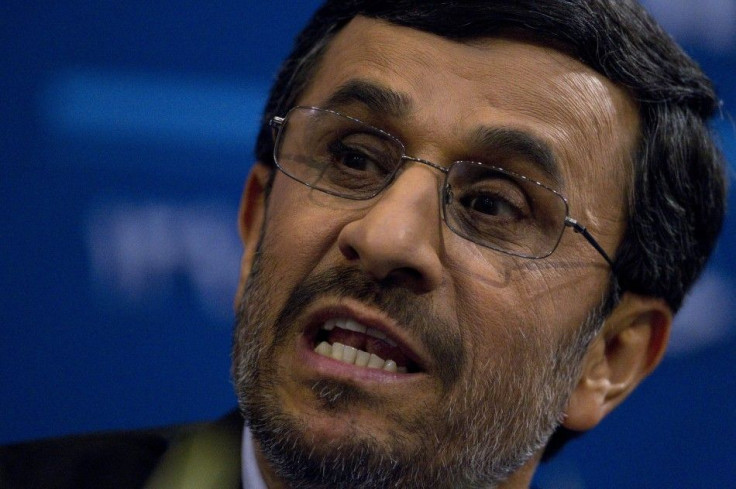Ahmadinejad Offers to Revive Nuclear Talks with West, but Remains Defiant on Sanctions

Under increasing pressure from western sanctions, the president of Iran Mahmoud Ahmadinejad has reportedly offered to revive stalled negotiations over the country’s nascent nuclear program.
Talks between Iran and the five permanent UN Security Council members (plus Germany) have been in limbo since January 2011.
Ahmadinejad is the highest Iranian government official to offer to re-start the talks.
However, in keeping with his defiant stance, Ahmadinejad nonetheless vowed that new tough sanctions against Tehran will not force Iran into a position of weakness.
Iran has long insisted that its nuclear program are designed for peaceful uses, denying a report late last year from the United Nation’s atomic watchdog International Atomic Energy Agency (IAEA), that the Persians are seeking to develop nuclear weapons.
Earlier this week, minister the European Union (EU), formerly a significant buyer of Iranian oil – accounting for about one-fifth of Iran’s oil exports -- voted to ban all new oil contracts from the Islamic Republic, citing that they were not convinced that Iran is committed to peace.
EU foreign policy head Catherine Ashton said the new sanctions were designed to put pressure on Iran to come back to the negotiating table.
The EU’s measure came on the heels of a severe step by the United States by forcing all foreign governments and companies to deal with either Washington or Teheran (but not both).
The U.S. and Europe have been trying to persuade Asian buyers of Iranian oil to cut back. While Japan (a solid western ally) has made some commitments in that direction, China has repeatedly condemned sanctions against Iran, as have the Russian.
China is Iran’s number oil crude oil customer.
Ahmadinejad also implied that the western nations themselves have been unwilling to negotiate in good faith with Iran over the nuclear issue, citing that those who resort to coercion are opposed to talks.
In a speech given in the southeastern Iranian city of Kerman that was broadcast on state-controlled television, Ahmadinejad said: It is the West that needs Iran and the Iranian nation will not lose from the sanctions. It is you [the west] who come up with excuses each time and issue resolutions on the verge of talks so that negotiations collapse.”
The President added: Why should we shun talks? Why and how should a party that has logic and is right shun talks? It is evident that those who resort to coercion are opposed to talks and always bring pretexts and blame us instead.
Ahmadinejad also explained why the US sanctions will not harm Iran’s economy.
Once our trade with the Europe was around 90 percent but now it has reached to 10 percent and we are not seeking this 10 percent... experience has shown that Iranian nation will not be hurt, he said during a TV broadcast.
For the past 30 years the Americans have not been buying oil from us. Our central bank has no relations with [the U.S.].”
Meanwhile, officials of IAEA said they are still planning to visit Iran from 29 and 31 January in order to resolve all outstanding substantive issues.”
Separately, Iran has also threatened to blockade the Strait of Hormuz, the crucial shipping lane through which 20 percent of global oil passes through in retaliation to the sanctions.
© Copyright IBTimes 2024. All rights reserved.











